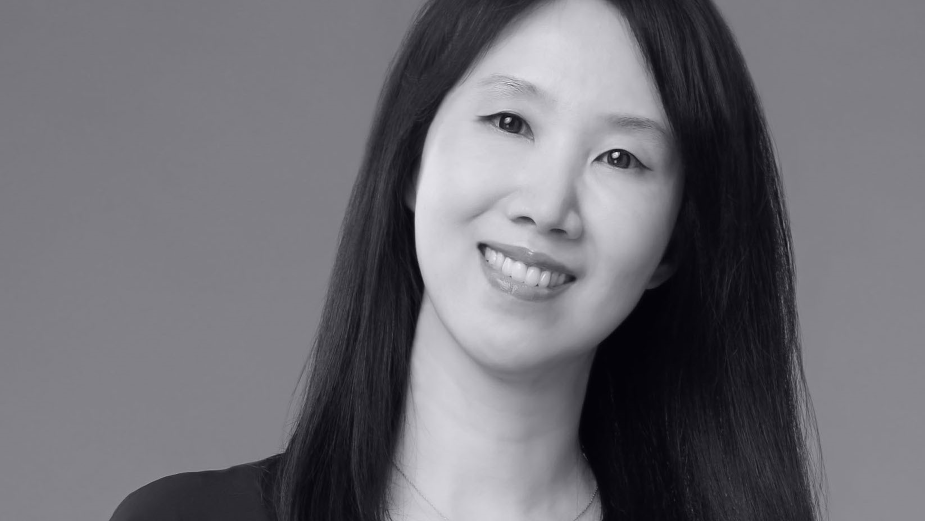
5 Minutes with… Alice Chou

Alice Chou began her career on a different path. She switched roles between being a secretary, magazine editor and in production, until she fell into advertising and into what she calls ‘Alice’s wonderland’.
It would be nice to say that’s where the story ends, but for Alice and her ability to never stop pushing herself she went onto climb many mountains - both figuratively and literally - until she was named CCO for dentsu Mcgarrybowen Taiwan in 2015. She is also a keen advocate for women in the industry as well as a champion of young creatives.
LBB’s Natasha Patel caught up with Alice to hear more about her career path, why she believes climbing Mount Fuji taught her so much more than about her stamina and the importance of nurturing fresh talent.
LBB> Tell me about your childhood and early days, was creativity always something you wanted to pursue?
Alice> Most creative people are quite rebellious when they are young, but I was the opposite; quiet with good academic results. A lot of people say I am living in my own world but I couldn’t care less, don’t talk too much but think a lot. I always live in the real world with my own dreams. Later I realised that dreaming actually is putting together what we see and experience in real life and make that out of a story unconsciously. I think this is the reason why I would pursue my career in creativity later.
I am a copy-based creative person. Actually it was my father who taught me how to write in the early days. He was my first writing teacher. When I was young, he would take me for a ride with his bicycle and whenever we encountered something interesting, he would stop and chat with me. And then asked me to write down what I saw that was interesting or my viewpoints and then taught me how to structure the main theme and the wordings to phrase that. With all this kind of training, I was better in Chinese writing than most of my age group and that actually built up my confidence in my writing skills. My essays were also constantly published in our school journals. Unfortunately, I did not become a writer, instead a copywriter.
There may be another reason why I like to be a creative person: we were all under tremendous pressure when we were students for different kinds of examinations. I found out I had a kind of mysterious ability that when I was really focused, I would fall into a mysterious place, no time zone and not feel hungry at all. Just like Alice In Wonderland, falling into a black hole…. The outside world suddenly disappeared and all problems were solved immediately and my creativity can extend without any limits. That was a really surprising form of happiness. I was indulged in that kind of happiness and got addicted to it. Though it was a painful process, my brain was full of information and a lot of questions, worries, no hints, it nearly exploded… Then suddenly I fell into that mysterious tunnel and bang, fireworks displayed! And that was a wonderful feeling. Maybe I am not pursuing a kind of creativity, instead I am keen to go after the process of coming up with a great creative idea.
LBB> How did you first get into the creative industry and were there any particular ways you honed your craft?
Alice> When I was young, I didn’t have advertising as a career choice. I am not one who knew what to do in my early days. Because I was pretty good at communications, I worked as a secretary to a general manager. As I liked to write stuff, then I was working as an editor in a local magazine. And because I had an interest in movie dramas, I was a production planner. Until I became a copywriter in an advertising agency, I realised all my previous experiences were for me to fit that role. When I first started as a copywriter, it was really busy and I even had to work during weekends. Most of my colleagues felt like it was hard, but to me, except without enough sleep, I didn’t feel tired at all.
To those international clients which didn’t have enough room for local creativity, I would study how they could find their creative appeal and discover where that concept originally came from. For those small jobs or editorials that nobody wants to do, I would experiment with my art director to put that into different kinds of formats and writing styles. That client's general manager would like to meet with a junior copywriter like me just to find out how I did that.
I enjoyed that kind of focus and the happy feeling of dropping into that creative black hole. I always tell everyone I have two mysterious medicines: one is to make it big. Aiming at the target, I have a very powerful determination. When everyone is going to give up, I would hold back and wait calmly. I will then grasp that particular opportunity, strike back and hit my target.
The other is to make it small. When facing challenges, I understand the art of compromise. To a lot of people, compromise means failure, but I don’t think so. There is always a need to make compromises when one pursues ideals. As long as we never forget our goal, then compromise is not a compromise. We bow down because we want to get out of that awkward situation first and wait for a better opportunity to strike back.
Many people say I am a workaholic, actually I am not. I just enjoy the fun of working. Creative is Alice’s wonderland and I feel I am still having an adventure in my dreams and never want to wake up.
LBB> It sounds like you’ve had a real ride over the course of your career. Looking back, which moments have stood out to you the most?
Alice> One year my company sent me to climb Mount Fuji in Japan. As I seldom do exercise, I felt a bit panicked at the very beginning. Moreover, I was overtaken by many people on my way up which made me breathless and worried what I am going to do if I am going to be the last one? One of my seniors came over and said to me: “It’s ok to be slow, just keep moving forward you will be just fine.”
When I stopped worrying about being surpassed by other people, I slowly adjusted my tempo and found my own rhythm and pace and kept reminding myself not to stop and gradually I managed to climb to the top of the mountain and even surpassed some people who were in front of me before. I think advertising is just like climbing Mt. Fuji - make sure you know where you want to go, look at the vision and that will not be so hard in front of you. Keep to your own belief and it is ok to be slow but just don’t stop, keep moving forward and you will reach your destination finally.
LBB> I know you’re an advocate for young creatives, tell me more about your mentoring process and what you look for when hiring?
Alice> When I started as ECD a couple of years ago, I found out we used to hire fresh graduates every year but stopped that recruitment practice. After doing some research, it was because creative people are so busy that they don’t have enough time or extra resources to train up those fresh grads because they are so inexperienced that they can’t help too much.
But I wanted to bring some young and fresh power to the creative department, so I started to interview those fresh graduates personally and spent time coaching them- from copywriting, storyboard development, presentation etc. The results paid off. For several years, young talents in our company won local competitions and represented Taiwan in international awards like Cannes Lions, AdFest, Spikes Asia, LongXi especially winning the AdFest Young Lotus in 2014 and LongXi Nova in 2016. I am really proud of their achievements and now they are being poached by other companies.
Maybe it was that I grew up in an environment full of encouragement and trust that I like to use the same ways to coach the younger generation, explore their unique talents, let them build up their confidence and give them responsibility. When people have confidence in their own abilities, they can demonstrate amazing power and capabilities.
I don’t have a routine recruitment standard. I usually ask them to bring their own portfolio, a painting or even a film cut and observe how they conceptualise their ideas and understand what are the motives that drive their soul? How do they express themselves? Their passion point? What really moves them? I personally think I am really good at scouting future talents. It’s a mysterious journey to have spotted a good talent, it’s just like an electrical current that passed through your heart and just felt it. That’s it!
LBB> I know you worked on the Single Belief campaign for The Glenlivet which was designed to look more like a short movie than a campaign. Tell me more about this project and why Taiwan’s audience resonated so much with it.
Alive> The client's brief was: The Glenlivet was the first to get a Whiskey license in 1824. For hundreds of years, it never changed the original taste and therefore set the standard for single malt whiskey.
Our concept was a Single Belief. A pure and single belief that has gone through the test of time, always insisting on the original intention and becoming an irreplaceable standard.
In this fast-changing world, most of us are afraid that we can’t catch up with the trend and want to keep on changing and changing… Nevertheless, The Glenlivet, for hundreds of years, has dared to be different by staying the same and becoming a timeless classic.
Keeping in line with The Glenlivet's positioning as "the single malt that started it all", the film promotes the brand's unchanging spirit in producing high quality tasting whisky consistently since 1824. The 15-minute short film saw the collaboration of internationally renowned Golden Lion film winners, director Tsai Ming-Liang and actor Lee Kang-Sheng. Returning to the location of the pair's first film, Ximending (Taipei), Lee stands still amidst the crowded streets with a calm and steady gaze despite the curiosity of passersby. Using an experimental filmmaking method to capture the general public’s natural response, symbolic of his steadfast creative vision throughout Lee’s film career, this stance parallels that of The Glenlivet's ‘Single Belief’.
The award-winning film was screened exclusively in ‘The Glenlivet Whisky-Tasting Theaters’, with 28 screenings being held across Taiwan. In this sensory experience, whisky lovers enjoyed a drink of their preferred spirit while watching the film, reinforcing The Glenlivet's brand power with every sip.
LBB> I'm so interested to hear about Taiwan's creative scene, what do you think drives it?
Alice> Taiwan is a small island and people are very close to each other. Though we don’t have large-scale and big budget productions like international work, we still manage to use our simple and unique way to come up with emotional storytelling.
Taiwanese people don’t like watching advertisements but they would spend hours on dramas or movie content especially those long series. Recently Taiwan’s storytelling and quality of film production is gradually being recognised by the international community and there are some outstanding works that have good exposure internationally especially in the branded content and entertainment category.
LBB> What do consumers want to see in campaigns? Also, how do you ensure you keep at the forefront of their minds?
Alice> Just like other places in the world, Taiwan has also entered its digital age.
People get together by hot topics or the same interests. We have to be able to see through their eyes to find the content they love, talk about the topics they care about, step into their favourite programs, transform into their favourite movies. We can’t just simply use product stories to attract them.
A brand must understand their expectations, what they fear and want to go after. Only after that you can really move them and indulge your brand into the bottom of their hearts.
LBB> What is it like being a female creative in Taiwan's industry?
Alice> Compared with other Asian societies, the female working population exceeds 80% in Taiwan and enjoys a very good social status. So being a female creative in Taiwan is a blessing.
LBB> You've received a lot of industry recognition, but I'd love to hear more from you about the importance of that?
Alice> Actually all the recognitions are not about me alone, I represent the team’s work, my company and even sometimes it represents the creative standard of our country which is now being recognised internationally. When our work and ability are being recognised by more and more people, then we will have more confidence in ourselves and push ourselves to continue to pursue even better work.
On the other hand, because of these industry recognitions, I can have more chances to make contact and learn from the outside world. Just like opening a window shelf makes me feel humbler, use another angle to view our work back home and think about how we can make it better. Throughout these years, I try to use what I have learned in the past and organise that into a series of courses to share with the advertising industry in Taiwan as well as with my company colleagues.
LBB> Outside of work, who is Alice? What do you do to unwind?
Alice> A Leo, wife, a mother of two grown up kids, youngest daughter in the family, a dreamer and a creative lead.
Though I have been in the ad business for many years, I always forget my age and am still full of passion for creativity. I always like fantasy and dreaming just like when I was a kid.













